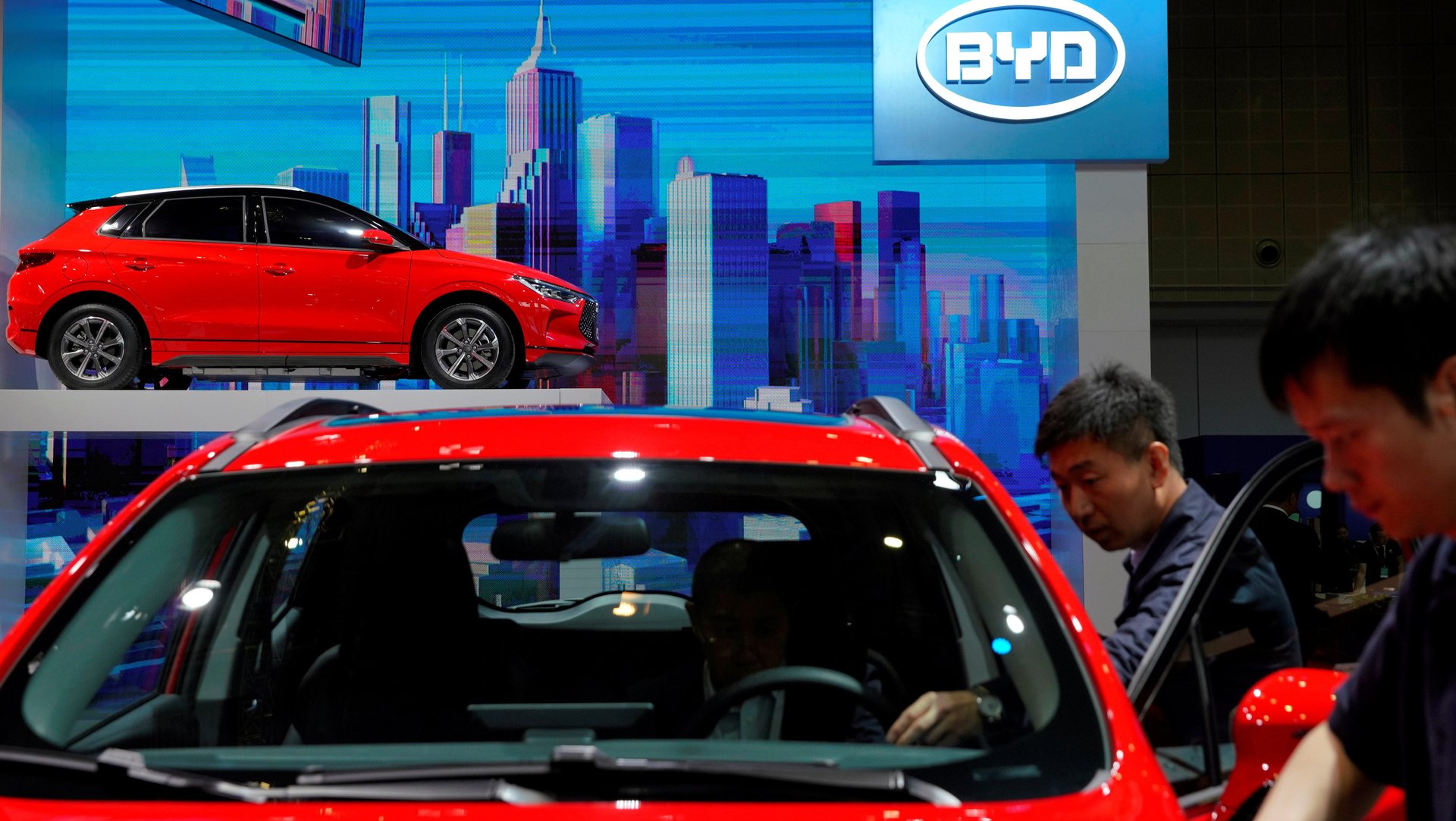Beijing’s subsidy cut is starting to hurt China’s largest electric car company
China’s latest electric-car subsidy policy is intended to strengthen the industry by “eliminating the inferior.” But when it comes to “selecting the superior,” things aren’t exactly going to plan.


China’s latest electric-car subsidy policy is intended to strengthen the industry by “eliminating the inferior.” But when it comes to “selecting the superior,” things aren’t exactly going to plan.
Since late June, when Beijing began cutting subsidies for electric vehicles by half, on average, the market has slowed. Monthly sales at the country’s largest EV maker, BYD (Quartz membership exclusive), are perhaps the most telling sign of what to expect when nationwide July sales are released later this week or next.
The Shenzhen-based carmaker announced today that it sold 16,567 units in July (pdf), including pure electric and plug-in hybrids. That’s down 38% on the month before and 12% lower than the same period last year.
BYD’s sales of pure electric passenger car have slumped in particular, falling by half in July from the month before. Electric passenger cars have often been three times larger than sales of plug-in hybrids, but in July the gap narrowed. BYD sold 9,515 pure electric cars last month, only around 1.5 times larger than plug-in hybrid sales. That could be directly related to Beijing’s subsidy cuts, which hit cars with ranges above 300 kilometers the hardest. Some of BYD’s most popular models, including E5 and Yuan EV, fall into that category.
Whether BYD can adapt smoothly without Beijing’s help is a test case for Beijing’s nearly decade-long subsidy policy. The company’s revenue from EVs took off in 2015, reaching nearly $800 million in 2016 on sales of some 96,000 EVs. BYD never reveals how much subsidy it receives, but government data show it got as much as $1 billion at the federal level for cars sold that year. (Local government subsidies are separate.)
BYD is on track to sell more EVs than fossil fuel-burning cars this year for the first time. The second half of the year is traditionally important for car makers to clear out their inventory before new subsidy policies kicks in. China plans to move away completely from subsidies in 2020, replacing them with a credit-trading system. Meanwhile, as the Chinese auto market is expected to continue to slow amid the trade war with the US and a decelerating domestic economy, EV makers will be left to navigate under their own power.
Looking for more in-depth coverage? Sign up to become a member and read more in-depth coverage of China’s electric-car boom in our field guide.